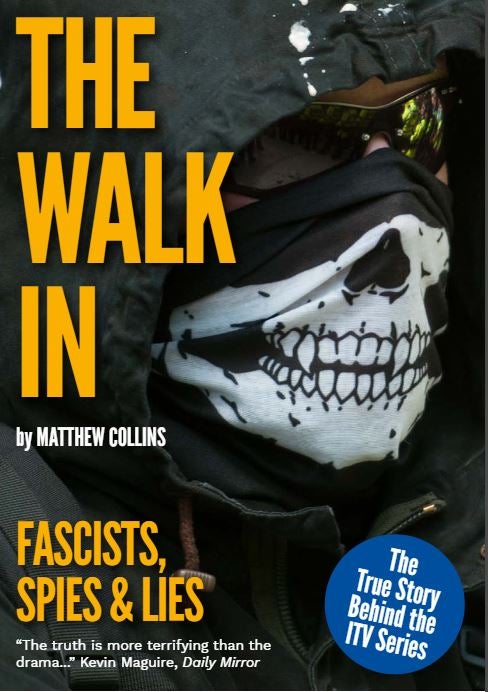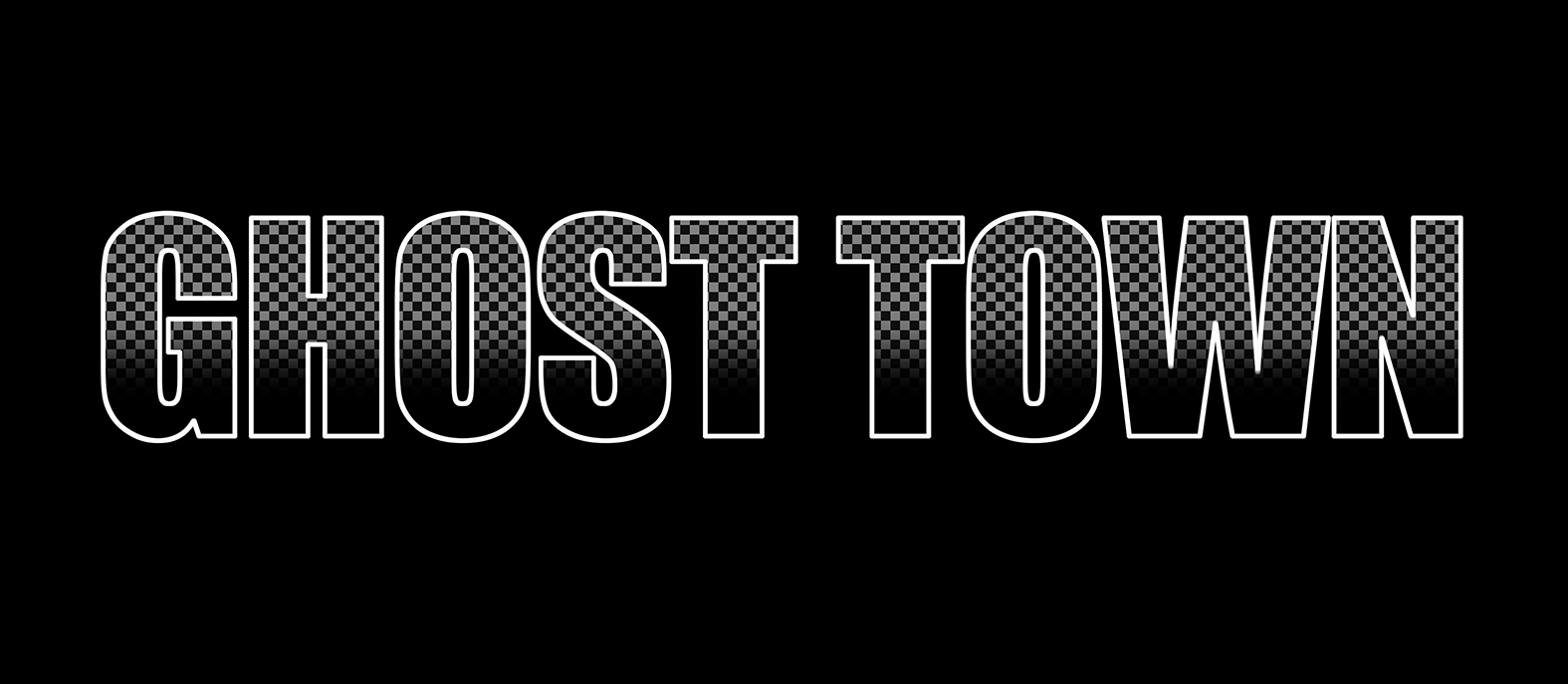
What the 2023 Women's World Cup might change
15.07.23
On the eve of the tournament kicking off Philosophy Football's Mark Perryman has a ponder

"Italia '90 was a watershed for English football. Post-Hillsborough, post-Heysel, post-awful 80s hooliganism. It wasn't just a working-class sport anymore. It was a national sport for everybody." Gary Lineker
Gary's right. Italia '90 was without doubt a glorious moment. But one that was then transformed to enable the wholesale transfer power from football's governing bodies, at least nominally governing in the interests all, the richest clubs only interested in their own, and now super-charged, financial self-interest. AKA mod£rn football.
So deep breath, what might become of the aftermath of the women's game's glorious moment, England winning the 2022 Euros.
Well first off, instead of losing in the most dramatic of fashions, a feat the men's team repeated at Euro 2020, but this time in the Final, at Wembley, the women won, and at home. Those two factors are of course crucial. The men losing meant the 2022 final was only remembered for flare-up-the-arse man, mass antisocial behaviour on Wembley Way, and online racial abuse of the three black missed penalty takers.
The women? A near faultless campaign, a team made up of hugely engaging personalities, a thrilling final, the whip off the shirt sports bra celebration, beating Germany (Germany!) at Wembley. No, not 1966, this was 2022 and women, not men ending England's 56 years of hurt. Who would ever have thought it?
And since then England have beaten the reigning World champions, USA, and reigning South American champions, Brazil, both in front of full-to-capacity Wembley stadium crowds. Despite a raft of injuries affecting key players from the Euro '22 winning-squad anything less than the semis at the '23 World Cup would be considered a disappointment.
Will that be enough to sustain the momentum since 2022? Possibly, though of course nothing like the impact of winning the World Cup! Now that would be off the scale, to put even '66 in the shade.
But before we get too ahead of ourselves what's the current state of the women's game post '22?
Domestically more and more clubs are hosting their Women's Super League and Women's Champions League games at the men's club grounds. For the most part to sold out or near capacity crowds. For the spectator sport side of football this is both unprecedented and most welcome. Yet with precious few exceptions hardly any of the women's clubs have a ground they can call their own, playing games at lower division or non-league grounds miles away from the men's stadium, in many cases not even in the city or town the club is named after. Chelsea have tried something different, bought up AFC Wimbledon's old ground, Kingsmeadow in Norbiton, and turned it into a tasty little stadium for their hugely successful Women's team shared with men's age group teams. Manchester City have done something similar with a mini-stadium just a long throw-in away from the Etihad. Both give their women's teams a home to call, and make, their own.
However, women's clubs lack of their own, or to use the classic feminist term 'autonomous', identity is rooted in the structural not simply the geographical. The classic account of Italia '90 All Played Out was written by Pete Davies and was a runaway 1990 bestseller. Six years later Pete shocked his publisher, and no doubt a lot of readers with instead of a rewrite for the Euro '96 version, same result, out on penalties to the Germans, I Lost My Heart to the Belles. Long before the popularity of the Lionesses, Pete's book revealed the community and spirit of at the time the most successful women's club team, The Doncaster Belles. And the book inspired a fictionalised BBC series too Playing the Field that ran 1998-2002. For what an autonomous women's game might look like neither can be bettered.
Of course, the resources ploughed into their women's clubs, including crucially professionalisation, by Chelsea, Arsenal, Manchester City and Manchester United are to be welcomed but it has come at a cost. Clubs like the Belles now hardly exist, certainly not at the elite level, the Belles themselves subsumed into Doncaster Rovers. It is scarcely credible this process won't be to the detriment of shaping a specific identity for women's club football. And at the same time has produced the total domination of the women's top division and cups by more or less the same 'big 4' as the men's game. But in the men's game this unwelcome process took several decades, in the women's game it has been achieved in a matter of a few seasons. This is what accelerated mod£rnisation looks like.
My own club, Lewes FC is in part an exception to this frankly depressing picture. The non-league part-time semi-professional men's team play in the Isthmian Premier League. The full time professional, including a good number of internationals, women's team play in the Women's Championship. Quite a contrast, enabled by the ideas and financing of the club's pioneering Equality FC initiative. Though even with all this whether Lewes FC is still thought of as primarily a 'men's club' is a moot point.
A new wave of participation as players, driven by school and grassroots football does at least offer the basis of a different model. And while the spark was the Lionesses success, there's been a welcome break from the flawed mantra of the 'role model'. In its place a focus on dramatically improving the number of girls able to play football at school. This at least has the rudiments of an understanding that sport, and in particular participation, is socially constructed.
The initial results are encouraging but this was from a very low base. And the same with boys, school sport is the relatively easy part to fix, what happens when they leave school and compulsory PE lessons is an entirely different matter. Competitive team sports are one of the worst versions of physical activity to encourage lasting participation, once not picked for the first team interest plummets. If participation levels are to be sustained the much bigger challenge is to foster a culture that values all those who want to play, women's football as a social space as much as a competitive sport. What might be characterised as the women's equivalent of Sunday league park football. And this most of all demands resources, starting with having a park which has a pitch to play on!
And the global game we are about to enjoy in the shape of World Cup 2023? The spread of winners since World Cup 2011 albeit restricted to just two, Japan and USA (2), would appear to show how markedly different the women's global game is to the men's. With China, and Canada numbered amongst the quarter finalists through the period this seems to further emphasise the point. And while it might pain fans of the men's England team but back to back England World Cup semi-final appearances is something not even Gareth Southgate has managed, nor any other England manager for that matter.
So far, so different, but the women's World Cup in another way isn't so very different. No African winner, semi-finalist or even quarter finalist. FIFA's effort to affect this imbalance is exactly the same as for the men's game. To expand the tournament first from 16 to 24 for the 2015 tournament and just 8 years later to 32 for 2023. Again accelerated mod£rnisation. And in the process necessitates co-hosts, divided by an ocean, which only serves to undermine the cohesion of a tournament, a single host stamps its identity to make the World Cup really special, for travelling fans and those watching on TV, co-hosts really struggle to do so.
The 2023 debut teams Philippines and Vietnam, Zambia, Haiti, Panama and Republic of Ireland, well let's see if any get out of their groups. This is a FIFA top-down rebalancing act, a fast-forward version of the men's. Far better would have been to keep to 24 nations, with a single host, but invest seriously in the confederation tournaments to raise the standard of the game globally. In hock to the Arab petro-dollar states, the striking absence of teams from this part of the world, unlike at the men's tournament, goes largely unremarked upon by FIFA, maybe something to do with women being banned from playing football in these countries?
Once the tournament begins, whilst it's important not to forget these various failings, all England fans' eyes will be on the Lionesses progress. In the Group Haiti up first should be a walkover, Denmark failed to get out their group at the Euros, China have been a major power, Quarter finalists in 2007 and 2015, almost made knock out states in 2019. Still, anything less than England topping their group would be quite an upset. Group 16 stage? Hope for Canada and avoid the hosts Australia, though either should be beatable. Quarters, when England men usually exit, if pluckily, toughest opponent so far Germany and desperate for revenge after the Euros. But not quite the force they once were, if England advance expect Lionesses-mania to take over. The quarter arguably a tougher proposition than a semi likely to be against France or Australia, either beatable unless the home advantage has fired up the Aussies (and losing the Ashes, yes please!). The Final, having to date avoided the reigning World Champions, well it has to be the USA, and you know we beat them only last year and weren't far off doing the same at World Cup 2019 either. Get the bunting ready? We can but hope.
Will any of this change the world of English football, not to mention anglo-masculinity? Not entirely, but neither would be quite the same ever again. Good.
Further reading
Pete Davies I Lost My Heart to the Belles
Suzanne Wrack A Woman's Game: The Rise, Fall and Rise Again of Women's Football

The Philosophy Football Lionesses World Cup 2023 T-shirt is available from here
Mark Perryman is the co-founder of the self-styled 'sporting outfitters of intellectual distinction' aka Philosophy Football
Why the NHS matters so much to so many
01.07.23
Philosophy Football's Mark Perryman celebrates 75 years of a nation being looked after
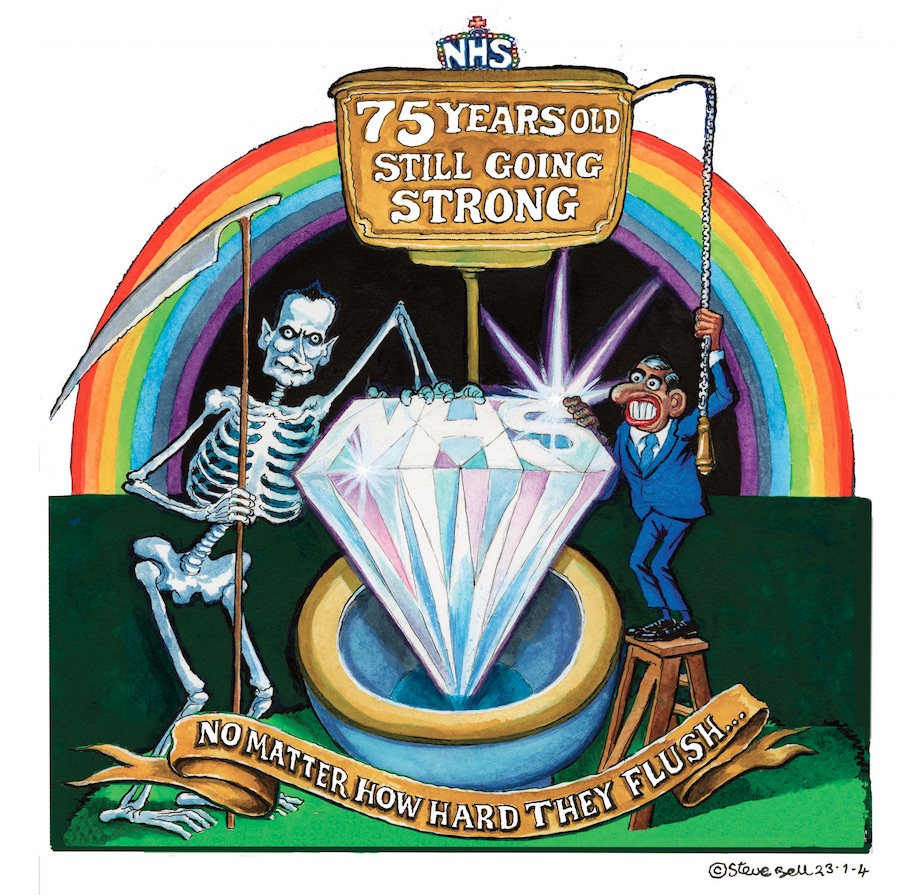
5 July 1948 the National Health Service was born. The architects of this most magnificent endeavour, Labour firebrand socialist Aneurin Bevan, a sort of 1940s cross of Tony Benn and Jeremy Corbyn, with archetypal social democrat economist John Maynard Keynes and liberal reformer William Beveridge. A curious mixture, today we might call it a 'progressive alliance' in those days the 'popular front'. A politics of co-operation, extra-parliamentary as well as at Westminster, founded in the 1930s with anti-fascism the core. At home to stop in the streets Mosley's blackshirted British Union of Fascists, abroad to defend on the battlefield Republican Spain from Franco's fascists
It is scarcely remarked upon by the cult of the Churchillian that in the year arguably Britain's greatest-ever wartime leader secured final victory against the Axis Powers of Nazi Germany, Fascist Italy and Imperial Japan Churchill led the Tories to one of their heaviest ever defeats. Churchill's much lesser-known deputy in the world War Two coalition government, Labour leader Clement Attlee captivated the electorate with his pledge to 'Win the Peace'. Our allies, the USA had their new deal, the Soviet Union their five-year plan. Both in their (very) different ways an effort at a fundamental redefinition of politics and in the process attracting global popular support. Now Britain was to have its own, and also different, go Attlee's post-war settlement was founded on five momentous changes. The Welfare state, nationalised public utilities, free, including university, education, full employment and the creation of a National Health Service. Campaign pledges, turned into institutional change once in office.
Bevan summed up the scale of ambition and achievement beautifully: " We have been the dreamers. We have been the sufferers. And now we are the builders." The NHS is widely regarded as the pinnacle of this shared purpose. So much so that for the intervening three-quarters of a century the NHS is often described as the closest the British have to a state religion. It is worth remembering therefore in all the hoo-hah of the anniversary that it was created in the teeth of the fiercest opposition from the Tories who described the NHS as nothing less than communism, while the main doctors' organisations resisted this most momentous change with a diehard defence of their previously over-privileged professional position.
Labour's failure to find an effective response, to build a popular bloc in support of the new settlement, to be proud and public about the scale and consequences of what it was setting out do contributed to Churchill's comeback General Election win in 1951. Attlee would never lead Labour to victory again, Bevan became both a compromised and marginal figure. Yet what both had created, the ideas of Beveridge and Keynes, remained in place, largely untouched for the best part of 40 years. The post war settlement transformed into a post war consensus, neatly encapsulated by a 1960s politics buzzword `Butskellism' that signified the large scale agreement by the two leading figures of political renewal, Tory Rab Butler and Labour Hugh Gaitskell.
All of this was to change in 1979 and Margaret Thatcher. Not in one term, not by one leader not by one party, but all the core components of the post war settlement dismantled, never to be replaced. Public utilities privatised under Thatcher none renationalised by Labour. State schools handed over to the private sector masquerading as Academies, a device massively expanded by Blair. University tuition fees introduced by Major, grants replaced by student loans by Blair, the cost of tripled by Cameron with the support of Lib Dems, and as a result universities now entirely marketised. Full employment as government's first priority dropped by Thatcher, rates of poverty soared ever since.
So come next Wednesday a celebration or a wake for the NHS? In theory its founding principle, or to continue the state religion thesis, creed, remains intact. Providing care based on need free at the point of delivery. But visit any modern hospital and those bright shiny ideals are rusting away. Vast 'super ' hospitals replacing closed down local services, funded by Gordon Brown's flagship economic strategy, PFI (Private Finance Initiative) leaving the NHS in ever-increasing debt to financiers for decades to come. Scanners and all sorts of other medical services operated by private companies to make a profit out of the NHS. Entire ambulance services operated by the private sector. Ditto hospitals' vital ancillary services. The nurses and doctors the nation clapped for through the Coronavirus crisis denied years' worth of wage rises just to keep pace with inflation forced to launch the biggest strike in the NHS 75 year history, for what? A living wage.
And there's an irony barely remarked upon with two 75th anniversaries taking place in the space of a few weeks. First Windrush, second the NHS. No institution in our society is as much loved as the NHS or so dependent, from top to bottom, on migrant labour. In all this feverish hatred of the very idea of immigration the NHS is testament to how immigration is a benefit to our society and economy, not a cost. For all of Labour's welcome talk of training thousands of new doctors and nurses - though the training infrastructure for such a ambition is almost entirely absent - it would be good if the fact the foundation, survival and future of the NHS are all impossible without immigration.
We celebrate the NHS as a popular institution, one many of us could quite literally not live without. Precious, sometimes flawed, right now more vulnerable than at any point in its history. Rates of obesity at an all-time high, levels of physical participation at an all-time low, the vape replacing tobacco smoking with the same health dangers this entails, the scourge of gambling addiction and all manner of other versions of mental health problems, an ageing population with dependents who have neither the time or the money to provide the care previous generations gave. The idea of the 'Nanny State' has become much reviled but in the shadow of war this is precisely what the NHS and wider welfare state represented. A society that takes the responsibility of caring for all. With apologies to Hattie Jacques not so much Carry on Doctor, Carry on Nanny.
 The NHS 75th anniversary mug designed by Steve Bell is available from here
The NHS 75th anniversary mug designed by Steve Bell is available from here
Mark Perryman is the co-founder of the self-styled 'sporting outfitters of distinction' aka Philosophy Football
Why the Europa Conference League matters more than the Champions (sic) league
09.06.23
Philosophy Football's Mark Perryman ponders a week of European Finals
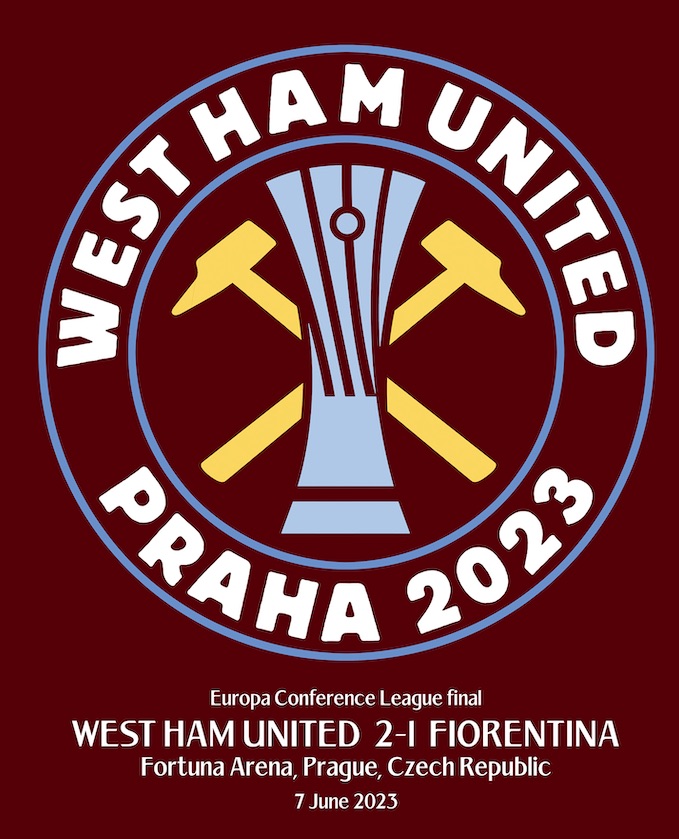
For anyone wondering if the Europa League matters I suggest asking Jose Mourinho, who last week found himself on the losing side in the competition's final. And as for this supposed poor relation's poor relation, The Europa Conference League, West Ham fans will tell precisely the scale of it mattering once they've fully recovered from celebrating Wednesday's victory.
But come Saturday night all of this will be condemned to pale insignificance with the Champions League Final heaped upon us. Should it?
First off, its not the Champions League, its the Champions and runners-up league, or to be strictly accurate to give the competition its full, if unofficial, title, 'The Champions and Rich Runners-up League'. When the competition was founded in 1992 it was with the express intent to create a cartel, to protect the interests of the biggest leagues - Premier League, Bundesliga, Serie A, La Liga - and the richest clubs therein. The predecessor, the vastly superior European Cup, failed to do this, champions only, and a knockout competition with no seeding left them vulnerable to being knocked out in the first round, my heart bleeds, its called 'the luck of the draw'.
Second, despite the brilliant fans' opposition to the European Super League, dumping the self-interest of their own clubs for the greater cause of a fair and equal competition, the Champions League drive to cartelisation continues unabated. Champions plus up to 3 runners-up creates a them and us top division. Group stage and seeding simply exacerbate, while the forthcoming transformation of the competition into effectively into a mid-week league completes the process, not that the greed will stop there.
Third, Despite Marseille's win in 1993 and Mourinho's Porto win in 2004 there's not a single surprise amongst the list of all the other Champions League winners. The chances of a repeat of Brian Clough's back-to-back 1979 and 1980 European Cups with Nottingham Forest, unarguably the greatest achievement of any English club manager and team, next to zero, or for any plucky outsiders from across Europe, such as Celtic's win as Scottish Champions in '67, either.
So dreadfully predictable? More or less. However, the vast petro-dollar riches underpinning Paris Saint Germain hasn't got them their most sought-after trophy yet, just to prove that economic determinism doesn't always triumph on the pitch. Whether Manchester City can usher in a period of continental dominance to follow their domination of football domestically, we haven't long to wait and see.
But, p'raps unwittingly (almost certainly so) the Champions League behemoth has opened up beneath it a more plural, equitable version of European football. Before the Champions League era there was the Cup-Winners Cup, in England the FA Cup winners qualified, and the UEFA Cup that in 'old money' the League Cup winners qualified for too. The Cup Winners Cup was abolished, the League Cup no longer offers a European place. This seemed to close off Europe for less fancied teams who'd proved themselves to be 'up for the Cup'. The likes of Wigan and Portsmouth, Swansea and Birmingham City. But such wins now are now next to non-existent. The Cups won by the same-old-same-old big six clubs with a squad extending to a second team stuffed full of first-choice internationals, and thus able to sustain cup runs alongside the all-important race for the Champions League spots. Meanwhile such are the riches of the Premier League almost every Championship club come January prioritise league over cup, and in the hope of joining that promotion race a year hence too, most League One clubs (the Orwellian renaming of what clearly is the second and third divisions the subject of a future critique) doing likewise.
Thus, even if those European competitions had remained as the prize for cup success few if any clubs outside the Premier League big six would have qualified (losing cup finalists have almost all been from the big six clubs too).
However, the Europa and Europa Conference Leagues have opened up such an opportunity. The impact of which is best represented by Aston Vila's last home game, versus Brighton and Hove Albion as each club's fans serenaded the other lot with 'We're all going on a European Tour.
OK Liverpool, after a failed attempt to grab the fourth and final Champions League spot made it into the Europa League, but Villa, relegation candidates as the New Year began, Brighton who'd never qualified for Europe before, this really meant something, And Brentford had been in with more than a sniff too. And not so long ago Leicester (twice) Wolves, Burnley, Middlesbrough (twice), Southampton (twice), Stoke have made it in too.
Plus the imaginative topping up of the trophy win with promotion to the next level of European football means West Ham are now guaranteed to play in Europe for the third season in succession, something even Bobby Moore's 1965 Cup-Winners Cup-Winning West Ham side didn't achieve.
And while only Porto from outside Europe's major leagues is yet to win either trophy it is the major league fair to middlin' sides of West Ham's kind of stature that have triumphed; Sevilla, Eintracht Frankfurt, Roma and the like. And in this instance the group stage format enable clubs outside these major leagues to sustain their interest in playing in Europe too. Will all this add up to an upending of European football's inequalities. Nope. But it does at least give a glimmer of hope for those who qualify neither as Champions nor rich runners-up. Enough to put a smile on faces painted claret, blue or otherwise.

Philosophy Football's limited edition West Ham Europa Conference League Winners shirt is available here
Mark Perryman is the co-founder of Philosophy Football, the self-styled sporting outfitters of intellectual distinction and pioneer of the Football, Culture and Community module at the University of Brighton.
Matched of the Day
18.03.23
Philosophy Football's Mark Perryman can't wait to hear what Gary Lineker has to say for himself on Match of the Day's return tonight

Gary Lineker himself admitted, in a tweet naturally, that as a public figure he had hitherto only attracted such a wave of affection when scoring England goals in a World Cup. His Italia '90 campaign was famously made into a hugely successful stage play An Evening with Gary Lineker that superbly caught what for those of a certain age Gary will always means to us, back then and now, until last week.
It wasn't exactly a surprise that he holds broadly liberal opinions, perhaps not Guardian-reading tho' his first stab at commenting on games started with a column for the Observer sports pages, and maybe tofu isn't on the menu for his halftime Match of the Day snacks but wokerati? (obligatory Philosophy Football product placement, yes we do the T-shirt). Guilty as charged.
The faux outrage at this has been quite something to behold. An ex-footballer, now a football presenter with opinions that stretch beyond interpreting the offside rule, well we never. There is a whiff of class-snobbery about this, presenting football on the TV for the brawny beyond the pale. Whereas presenting The Apprentice, Karen Brady and Alan Sugar, or set piece interviews with party leaders during a General Election, Andrew Neil, for the brainy and natural, actively encouraged to have opinions coming out of every possible orifice.
But there's a left version of this too ,wrapped instead in faux anti-establishmentism. A sanctimonious brand of socialism, thankfully a minority trend but highly vocal with its shrillness of denunciation. Where was Lineker on what march? Has he ever campaigned for refugee rights before? Why won't he talk about open borders, freedom of movement, no immigration controls? And his failure to do so means it should be Me! Me! Me! stirring it, not him.
Oh, and he once tweeted 'Bin Corbyn' so how can he possibly be one of us? Point missed, by a mile. The very effectiveness of his intervention is because he isn't 'one of us'. A popular politics embraces, in fact positively welcomes those, we don 't entirely agree with on A and B because we do agree with on C. Or as I prefer 'my front is Popular'. For the avoidance of doubt 2015-2019 I was in favour of anything but 'binning' Corbyn but to narrow defending asylum and refugee rights to an absolutist Corbynite Left can only condemn ourselves to purity of purpose in the cause of wholesale defeat.
In my political lifetime there have been two instances when such miserabilism was for once marginalised. Firstly the 1978-79 dynamic growth and success of Rock against Racism (RAR) which allied with the Anti-Nazi League served to defeat the very real threat of the Far Right, in the shape of The National Front. Secondly, the huge march and movement against the Iraq War. Neither would have happened without the dedicated organisational capacity of the Trotskyist Socialist Workers Party (SWP). For a second avoidance of doubt I am not nor have I ever agreed on very much with the SWP, let alone been a member. Yet in the case of RAR they centred anti-fascism on music, namely punk, quite unlike traditional political organising, then or for the most part since. And to help build the 2 million strong Stop the War march they understood that vigorous support of the then Piers Morgan edited Daily Mirror was somewhat more crucial, than Socialist Worker. Despite historical disagreements, in those two instances their Front was popular too.
The digital era, of which the reach of, and reaction to, Gary Lineker's tweet is very much a product of, has helped produce a kind of pop-up version of this popular version of politics. Black Lives Matter and #MeToo (over here particularly around the Sarah Everard rape and murder) and most recently the vigils following the transphobic murder of the teenage Brianna Ghey. All three were instant, huge and for those who took part incredibly emotionally charged in a way a parliamentary politics virtually never is. But those most ready to decry what goes on in Parliament as boringly irrelevant all too often have their own version of the dead hand of politics, the cult of activist privilege, the imperative to give more and more of ourselves for what rapidly becomes ever decreasing outcomes achieved by ever dwindling numbers.
Of course, a single tweet isn't going to change the world. But what Gary's managed to achieve was to shift the scale of was is possible in a way most of either parliamentarianism or activism fails and in a manner that is positively ancient. This 'I am Spartacus' moment captured the movie scene that made it popular so old few of today's generation are familiar with the films of the son of the star who starred in it famous, 79 year-old Michael Douglas, let alone the original 1960 version, his dad Kirk Douglas. I am Gary Lineker, 2023's version, featuring Wrighty and Chappers, with a supporting cast of Alan Shearer, Micah Richards, Alex Scott, Dion Dublin, Jermaine Jenas. I am Gary Lineker? No I'm Gary Lineker and as a glorious consequence not a single commentator, pundit, presenter or reporter available to make not only last Saturday night's MOTD possible nor Football Focus, Final Score and MOTD 2.
And limited to 280 characters a tweet does have a tendency to truncate any messaged in an unhelpful way, only to be exploited by those who disagree in any case with all remaining parts of it. However bad any Tory government, minister or policy none are remotely comparable with Nazi Germany. But those who diss any historical antecedents to the present might be careful what they ideologically wish for. A cursory examination of British politics of the 1930s will find umpteen examples of politicians and newspapers most notably the Daily Mail, warning against letting all these Jewish refugees in. The language and arguments near identical, to today's.
No the entire ugly discourse around the right to asylum and the status of refugees hasn't been changed in the course of a week. But when The Prime Minister stands behind his banner 'Stop the Boats' and Labour hastily prints up as its alternative 'Stop the Small Boats' (yes really, I'm not joking) then isn't it time to find the means to say something different?
When as the closing credits roll on Gary's return to hosting Match of the Day tonight there's little doubt he will turn to the camera with his trademark knowing grin. Even though we like to pretend we are what lies behind it none of us as viewers are privy to. But the 'knowing' we can all share is the theorist Stuart Hall's dictum " It is through culture that processes of social change make themselves most dramatically visible." In this regard football helps us make sense of race and nation, gender and sexuality, the local and the global, regulation vs deregulaion,Europe, in ways and on a scale like nothing else. Some on the Right now claim this contest of ideas, for votes, is a Culture War, a home win in the bag. As we (almost) say in football, they thought it was all over, it isn't now.
Philosophy Football 's I Am Gary Lineker T-shirt is available from here
Mark Perryman is the co-founder of Philosophy Football and the originator of the pioneering Football, Culture and Community module at Brighton University.
Why Mariupol matters to me a lot more than a 'Stop the War' march
25.02.23
Philosophy Football's Mark Perryman recalls Ukraine's summer of Euro 2012
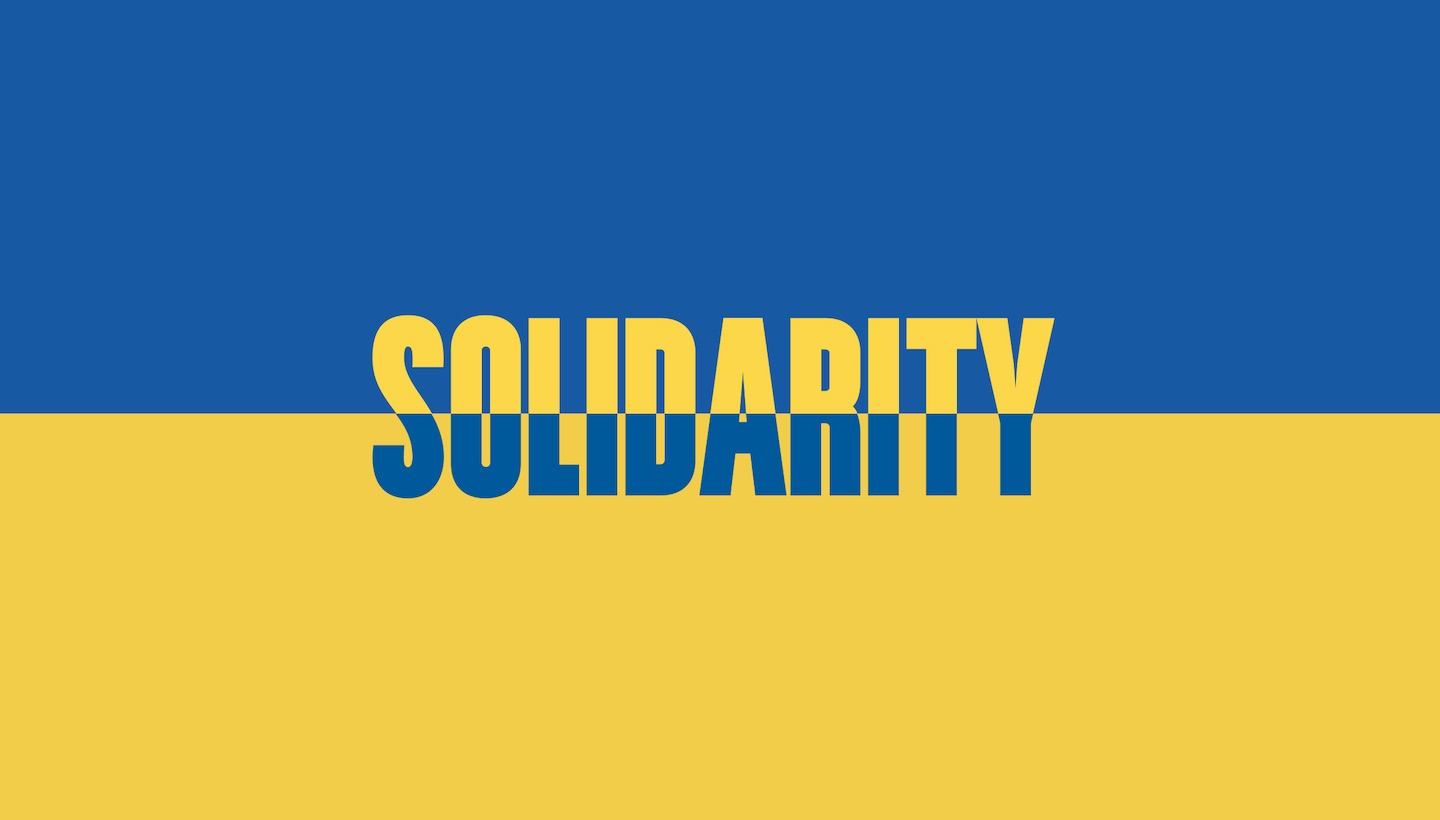
Early 2012, me and a bunch of 50 or so England fan friends were looking for where to base ourselves and our coach driven by our mate Dave Beverley all the way from Scunthorpe, for that year's Euros in Ukraine
The trick with a Euros or World Cup is not to stay in the host cities where costs sky-rocket but within 50-60 miles, hence Dave's coach to get us around.
50 miles south of Donestk where two of England's group games would be, cheap hotel, beach with a bar, sunshine. Touristy things too like an historic church we visited. Perfect, and despite dire predictions otherwise, so it proved. Ahead of Euro 2012 it was the media who stereotyped all Ukrainians as neo-nazis, now its those who oppose the invasion. They're both wrong.
And so we happened upon Mariupol, to be honest none of us had ever heard of it but Ukrainian contacts highly recommended it, worth a punt we thought, so glad we did.
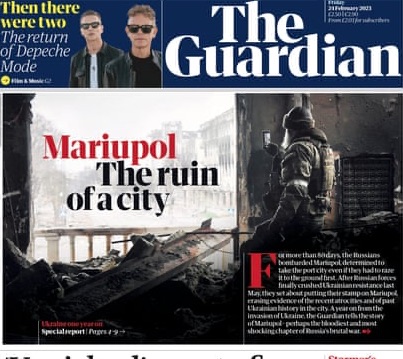
2023, the first anniversary of Russia's invasion and Mariupol is now front page news, bombed back, including that church, into the Middle Ages. I'm a solid internationalist. I boycotted South African goods for years, I was on the big 2003 anti-Iraq war protest, through Philosophy Football we've raised funds for a material aid convoy, one of the lorries driven by Hugh Tisdale my co-founder of Philosophy Football, to break the siege of Gaza. But I'll be honest its Ukraine that has moved me like nothing else.
I grew up politically through the second cold war. US Cruise Missiles vs USSR SS-20s. Then Gorbachev offered the promise of something different, a dream that's ended with the nightmare of Putin and oligarch power. This feels like not so much the Cold War revisited, but a hot war.
And this is Europe, never mind the EU, this is my continent. Through following England I've been to not just Russia and Ukraine but Poland, Hungary, Estonia, Moldova, Belarus, Sweden, Finaland all those countries most embroiled and threatened by this deadly conflict. This feels like home.
And for three weeks Mariupol was our home. When I see the pictures of this city reduced to rubble, it makes me think of my parents, father, RAF, and mother Royal Navy, returning from the war in '45 to Wallington in the south of London suburbs and roads of houses, schools, hospitals, workplaces bombed too, and hundreds of thousands made homeless the same experience across much of urban and suburban Britain. And now seven decades later Mariupol the same, Kharkiv where we stayed on route to Kyiv, Kyiv itself, if anything worse. Lviv too where after the, in those days inevitable, knockout on penalties in the quarters, the 50 of us in our coach passed through the border checkpoint to Poland that today tens of thousands of Ukrainian refuges have queued up to leave through, forced against their will by the Russian invasion to leave their country.
And now on the first anniversary a so-called a 'Stop the War' march. Peace Talks Now the organisers demand, revealing a bewildering absence of politics, or something worse, amongst the seasoned campaigners backing the demo. The might of Putin's Russia invades Ukraine and the only demand pinned on Zelenskyy is to sue for peace, at what cost? And when he pleads for arms to defend his country, a war-monger? Sanctions against Russia, will only harm ordinary Russians, a caveat, quite rightly, never applied to sanctions against Israel. So Stop the War in the absence of any help whatsoever to the Ukrainian resistance precisely what will bring Putin to the peace talks? What exactly will stop him turning invasion into occupation? How sad that 25 years after the 2 million strong Stop the War demo against the Iraq War the same organisers would get it so wrong this time around, trounciing themselves and their organisation's reputation in the process.
Yet it saddens me to write this, many of those backing the march I have over the years had the utmost respect for. But not on Saturday I won't, because while me and my England fan mates may never be able to visit Mariupol again, we will never ever forget or forgive what Putin and his oligarchs have done to the city.
Stop the War? Stop bloody Putin!
Mark Perryman was the convenor of LondonEngland Fans 2000-2012 and is the co-founder of Philosophy Football
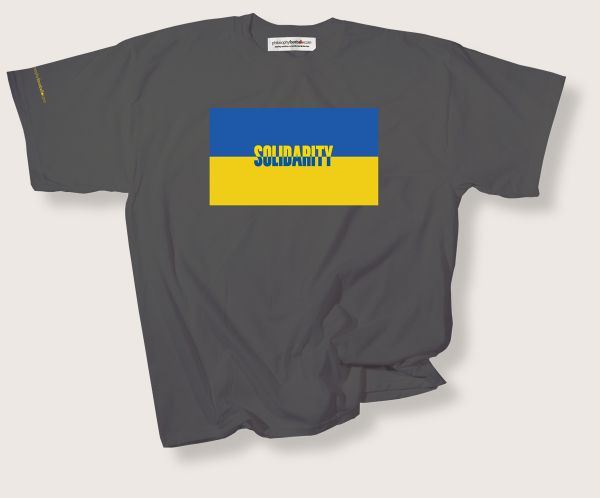
Philosophy Football T-shirts and badges raising funds for Ukraine aid and solidarity available from here
Scotland, England and Ninety-minute nationalism
11.02.23
Philosophy Football's Mark Perryman explores how an idea endures after the final whistle
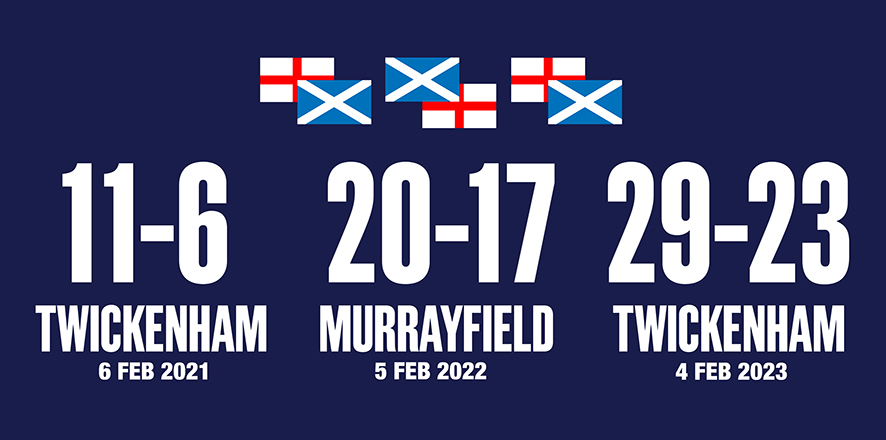
Or in the case of last Saturday's Scotland 29 England 23 'eighty minute nationalism' but doesn't alliterate as well as the original coined by Jim Sillars. In an earlier version of surging Scottish National Party (SNP) support former Labour MP Jim having joined the SNP in 1988 sensationally won the Govan by-election overturning a 19,509 Labour majority. Four years later Labour won it back.
On the global football pitch this era was pretty much as good as it gets for the Tartan Army. Qualifying for every World Cup 1974-1990, the first time to make it even sweeter for the Scots, minus England too. But beyond the touchline compared to now the SNP was very much a minor party, in that 1992 General Election Jim lost his seat the SNP returned just 3 MPs, the same dismal result as five years earlier in the 1987 Election.
How different to today. 'Eighty-minute nationalism'?More like 24/7. Afer the 2019 General Election across Scotland the SNP boast 48 MPs , almost all gained at Labour's expense, Labour itself down from 41 in Scotland as recently as 2010 to an unprecedented low of just one. Scotland's SNP First Minister Nicola Sturgeon absolutely dominating Scotland's political landscape, the SNP the governing party in Scottish Parliament as it has been since 2007.
And the rugby team, if not the football team, can put England to the sword, or should that be the claymore? Of course, this isn't to suggest every Scottish rugby fan cheering on their team, or football fan likewise, is a diehard Scottish nationalist but there is a political context to a Scotland victory at England's self-styled 'home of rugby'. Or to misappropriate the famous CLR James dictum on cricket ' What do they know of rugby who only Rugby knows'.
Scotland began their three-in-a-row winning streak of Calcutta Cup victories over England, their first such sequence since 1972 to loudly spoil Twickenham's 150th anniversary marking of the very first rugby international, Scotland vs England. In September Scotland play England at Hampden, because of last year's World Cup delayed a year, to mark the 150th anniversary of football's first international, Scotland versus England. On the pitch ours has never been a United Kingdom, a Greater England masquerading as Great Britain. Rather, three nations sharing one small island. Off the pitch in Scotland this nationhood is expressed via a hugely popular civic, broadly social-democratic, nationalist politics. In Wales via an increasingly independently-minded Welsh Labour Party who thanks to such positioning haven't suffered the same catastrophic declined as unionist Scottish Labour, alongside the Welsh nationalist Plaid Cymru, like the SNP civic nationalists, broadly social democratic.
But what of England? Twickenham, Wembley full of St George Cross flags every time England play. Lords, Oval, Old Trafford (cricket), Headingley and Edgbaston likewise for The Ashes this summer. And for a World Cup or Euros St Georhe is flown, worn, daubed on faces up and down the country too, but not much else when it comes to any sort of public expression of what England means. There is no nation the historian Eric Hobsbawm's observation applies more to than England: "The imagined community of millions seems more real as a team of eleven named people." Or indeed, fifteen.
When the Scotland and England rugby teams lined up for the pre-match ceremonies there is something unique about England's participation. While every other team in the world we play gets to sing their own National Anthem, England doesn't have any such thing. God Save the King the anthem of the United Kingdom but not England's to call our own. And thar United Kingdom? Scotland dropped it to adopt Flower of Scotland, Wales Land of our or Hen Wlad Fy Nhadau. What is it about the English we cannot be ourselves, subjects never citizens, in a country, unlike our team, we can call our own. Or as this so-called National Anthem rather neatly puts it ' Long to reign over us, happy and glorious'. Not exactly a vision for the new Jerusalem is it?
Perhaps part of the explanation lies in where Scotland beat England, Twickenham, headquarters of The Rugby Football Union (RFU). Unlike every national rugby union in the world there's a word missing, the country where the sport is being governed. And it's the same with Wembley, headquarters to The Football Association (FA), spot what's missing? The assumption some century and a half down the line from those first internationals is that the one true 'home' of these sports is here, England, and never mind the rest of the world. The result? Via this make-believe process we render ourselves incapable of understanding what Engand was, is, might yet become.
Further Reading Mark Perryman Breaking Up Britain : Four Nations after a Union

Scotland Calcutta Hat-Trick T-shirt Limited edition available from Philosophy Football here
Mark Perryman is the co-founder of the self-styled 'sporting outfitters of intellectual distinction' aka Philosophy Football
The beautiful Pelé
07.01.23
Philosophy Football's Mark Perryman goes in search of what the game has lost
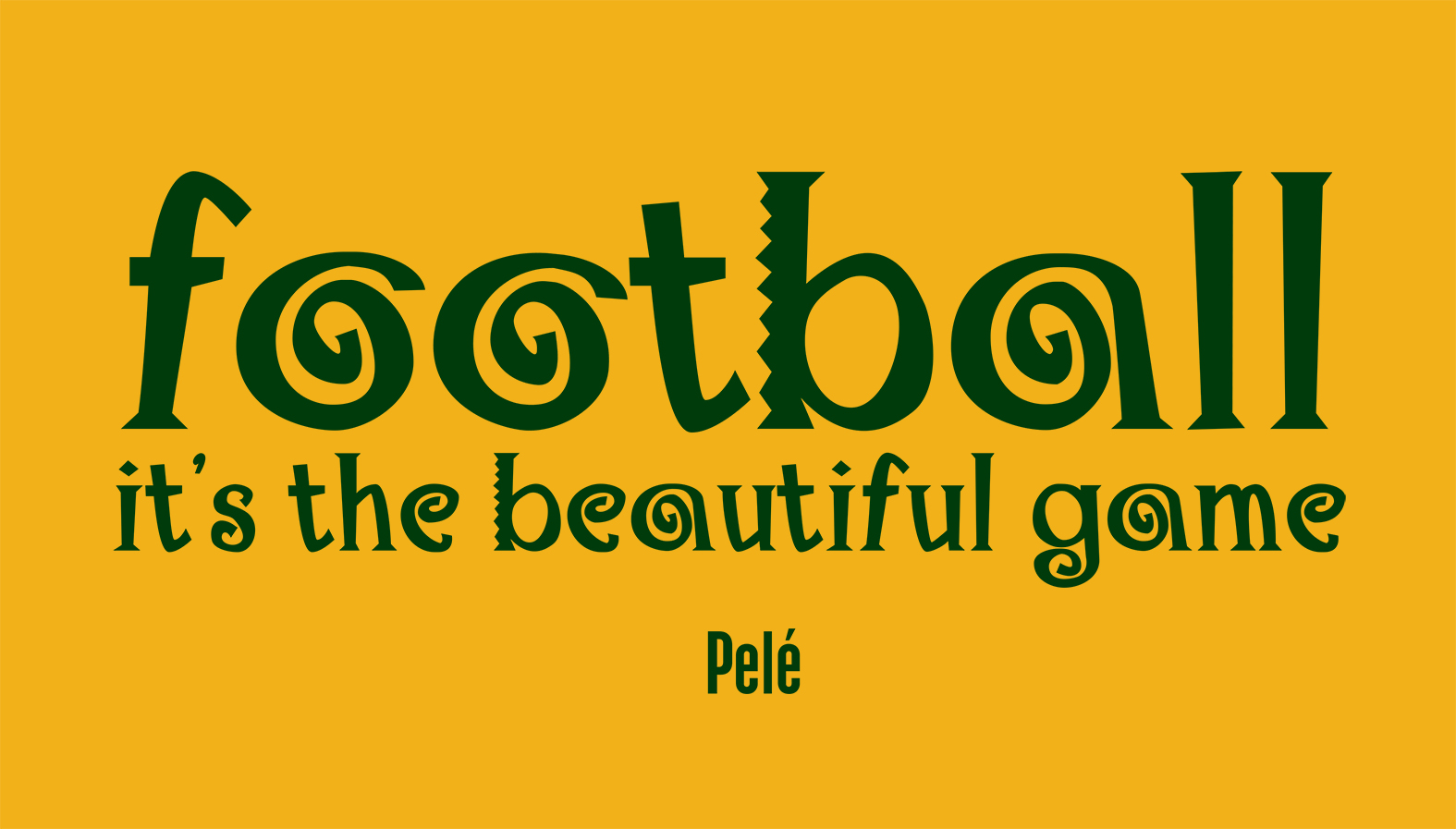
At Pelé's funeral this week it was noticeable how few of his surviving team-mates from the 1970 World Cup squad were present, only a few of those who followed him to Brazilian global superstardom, in particular Ronaldo and Ronaldinho both absent, and not many of Brazil's current stars either, Neymar the most high-profile absentee. What was it about Pelé they had failed to notice the game had lost and needed marking?
World Cup Final 1970, just round the corner my childhood friend Grant Ashworth's family had recently acquired a colour TV, the first in the neighbourhood. Grant invited all his friends round for a Sunday afternoon, the game on the TV, his mum had baked a delicious cake. I don't have any distinct memories of the game but I do remember the fun we had, the excitement of watching, in colour, this extraordinarily gifted team, the players' joy at winning Brazil's third World Cup, which meant they got to keep it, oh, and that cake. Afterwards we all piled out into the sunshine. Brazil fans, for life, well after England, obviously.
This was Pelé's fourth World Cup but it is the one that frames almost all our memories of him and what he came to mean. Sweden 1958, his debut tournament as a 17 year old was unarguably his greatest tournament as an individual player, and after the ignominy of Brazil losing their 1950 home final to Uruguay the country's first World Cup win too. This was also the first, and to date only, World Cup all four home nations qualified for, Wales the most successful. Until the teenage Pelé famously 'broke Welsh hearts' after holding out, if anything looking like the likely winners, until Pelé scores the only goal of the match. A game few if any back home would have watched on the TV, let alone in colour, grainy after-the-event newsreel footage down the local cinema, at best. 1962 Chile, Pelé was injured in the Group stage and played no further part in the tournament, Brazil's second successive World Cup win. A promising England team made it through to the Quarters, this time it was England's turn to have their hearts broken, by a Pelé-less, Brazil. And so 1966, three-on-the-bounce with Pelé in his prime? Pre-tournament favourites, in both senses of the word, for many. But brutal, clearly targeted and unpunished tackling of Pelé by opposition players put him, and Brazil ,out of the tournament at the group stage. A long forgotten footnote to England's triumph.
The Brazil 1970 victory was something else, a team, not just Pelé but Gerson, Jairzinho, Rivelino too, for once they even had a decent goalkeeper, Felix, and the finest World Cup Final goal, of all time scored, not by Pelé, but Carlos Alberto. This was the beginning of the era of televised football, for the lucky few in colour, but the access to watch at home pretty much universal, by the seventies in the UK 93% of homes had a TV. The stage for Pelé's triumph, global television.
No other team sport comes remotely close to football's global appeal, as an individual sport boxing, well until the bastardisation of what constitutes a World Heavyweight Championship, the only sport that comes close in terms of global popular reach. It is no accident that when citing the biggest icons of twentieth century sport Pelé would often be coupled with Muhammad Ali. They both meant, and mean, so much for many countless billions. It is futile to juggle an argument of the two who was the 'greatest' of them all, they are equals but different.
I sometimes pose the question to students, name eleven past or present Brazilian footballers. Easy-peasy. Now name the current Brazilian President, blank faces. OK Lula has his well-deserved appeal, Bolsinaro his well-deserved notoriety, but both are names instantly familiar only to a select group outside of their own country and continent. Brazil's status around the world almost entirely reduced to its football. Of course this isn't right, since 2001 Brazil has been grouped with Russia, India and China, the four fastest growing economies, with South Africa added in 2010 to become 'BRICS'. The survival of the Amazon rain forest, which is estimated to absorb a quarter of the world's C02 is central to our global climate's future prospects. The Brazilian city Porto Alegre pioneered participatory budgeting, for a while a hugely influential, idea on how to build economics,and politics, from the 'bottom up'. And that, for a non-Brazil expert, is my just for starters.
So why does Pelé matter? If I was to choose the world's three most popular figures of the latter part of the twentieth century my choice would be Bob Marley, Nelson Mandela and Pelé. OK we can argue over the particularities of my threesome but few would dispute each had a worldwide popularity of considerable magnitude. Three black men, from the global south. Politics, music and football, but each had so much more than 'just' this to scale that appeal. 1970 Mexico, Brazil v England, Group stage. Tournament favourites vs reigning world champions. In typically English style, a game we lost yet celebrate for the miraculous Gordon Banks of Stoke City save of what was otherwise a certain goal from then the world's most famous player, Pelé. A game that ended with the iconic picture of Bobby Moore and Pelé, stripped to their white and black chests, swapping shirts. Today we might think nothing of it, but it meant the world back then. Rivals, very different individuals, neither campaigners in the mould of two years previously, also in Mexico, Tommie Smith, John Carlos and their Olympic podium black power salutes. Yet in another way a sight, a picture, every bit as, arguably more so, significant. What can be an ugly game, part and parcel of an ugly society, made beautiful, the hope of a more beautiful society too. Pelé, Obrigado.
Further reading
Alex Bellos Futebol: The Brazilian Way of Life
David Goldblatt Futebol Nation : A Football history of Brazil
Tony Mason Passion of the People? Football in South America
 Limited edition Philosophy Football Pelé memorial shirt and print available from here
Limited edition Philosophy Football Pelé memorial shirt and print available from here
Mark Perryman is a Research Fellow in sport and leisure culture at the University of Brighton and co-founder of Philosophy Football
2023 A Year of Reading Dangerously
31.12.22
Philosophy Football's Mark Perryman has found the books to give 2023 some sparks

2022 a year of politics living dangerously? With three different Prime Ministers - one lasting all of 44 days the Conservative Party has written the book on it. But what reads in 2023 might help us to understand how a mix of ideas, culture and football can turn the dangerous into the hopeful?
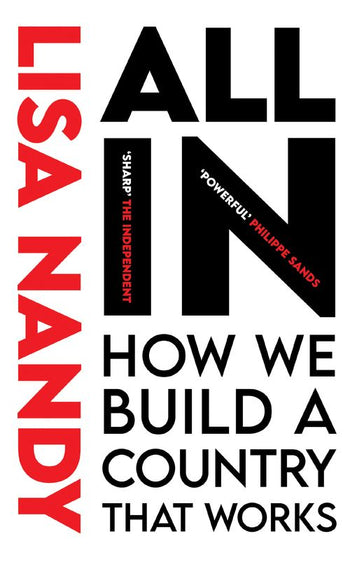
For a very original reminder of the 18 years 1979-1997 The Fascist GrooveThing : A History of Thatcher's Britain in 21 Mixtapes (for those put off by the title, don't be, Heaven 17!) if Sunak wins in 2024 he'll conceivably beat by a year, 19 years. Or, as seems more likely Labour wins Lisa Nandy would be one of the key figures in any 2024 Labour government, All In serves as her personal manifesto for office, and doesn't disappoint with the scale of radical ambition. Nathan Yeowell's edited collection of essays Rethinking Labour's Past which while heavily loaded to a Blairite / old Labour right narrative does allow for a pluralism Keir and his henchpersons have done their worst to stamp out in Labour. The urgent necessity for pluralism is proved by Maurice Glasman's Blue Labour: The Politics of the Common Good no need to sign up to the entire 'Blue Labour' manifesto of faith, family and patriotism to recognise there might be something in this worth engaging with. The Death of the Left : Why We Must Begin from The Beginning Again co-authored by Simon Winlow and Steve Hall doesn't make any such engagement easy. The 'Broad Church' anybody?
One version of a radical left thriving within a broad progressive party is found in the US Democrats. Symbolised by Bernie Sanders or for a new generation Alexandria Ocasio-Cortez. The Rise of a New Left : How Young Radicals are Shaping the Future of American Politics from Raina Lipsitz serves to illustrate the scale of loss when radicalism is extinguished. Luke Savage's The Dead Center declares being better than Trump isn't enough, true, but isn't even a marginal gain better than none at all, or worse?
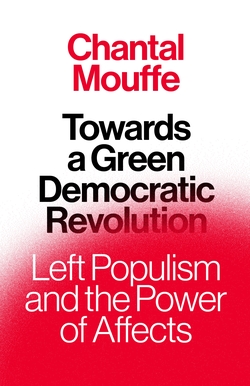
Chantal Mouffe's latest book Towards a Green Democratic Revolution: Left Populism and the Power of Affects showcases the ability of the best radical thinking to renew and reinvent without losing the core of what made them radical in the first place. A similar claim can be made of the anarcho-intellectual John Holloway who continues his treatise on horizontalism with Hope in Hopeless Times. The collection Between Catastrophe and Revolution: Essays in Honor of Mike Davis sadly now serves as a radical obituary to a great thinker and writer we lost in 2022. Read to celebrate, or discover, Mike's truly unique expanse of thinking and insight. Eco-socialism has ambitions to fuse both these key elements with a pre-existing anti- capitalism. Allan Todd's Ecosocialism not Extinction goes in search of such a fusion. Social Ecology and the Rojava Revolution is an edited collection from The Internationalist Community of Rojava. An extraordinary effort to be resist and rebuild a practical ecology whilst being besieged by Jihadists, Assad and Erdo?an. David Camfield maps out a quasi-manifesto in Future on Fire: Capitalism and the Politics of Change.
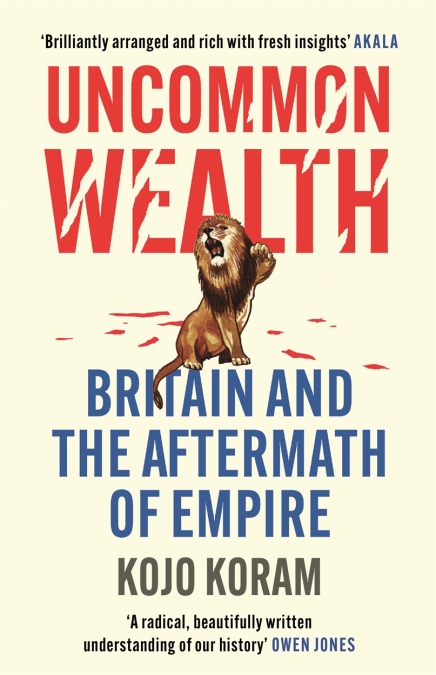
In the face of the scale of danger the Climate Emergency poses it would be easy to forget the divisions that criss-cross society every bit as dangerous. Sociologists Laura Harvey and Sarah Leaney's inspired collaboration with illustrator Danny Noble has produced Class : A Graphic Guide. Kojo Koram's Uncommon Wealth: Britain and the Aftermath of Empire absolutely locates race and racism within the framework of the colonial and imperial legacies which continue to shape modern (sic) Britain.
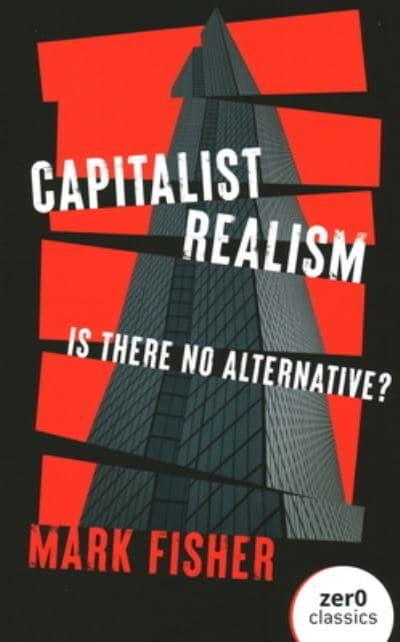
What might an alternative framework of ideas to live dangerously by look like? The new edition of Mark Fisher's classic short book Capitalism Realism : Is There No Alternative? with the addition of a brilliant introduction by Alex Niven, short enough to be read in one sitting, the ideas big enough to make 2023 truly dangerous. China Miéville makes the case for The Communist Manifesto in his stirring commentary on the original text A Spectre, Haunting. Noam Chomsky has been a towering figure of radical thought for decades, pairing him with Scottish novelist James Kelman has produced Between Thought and Expression Lies a Lifetime: Why Ideas Matter.
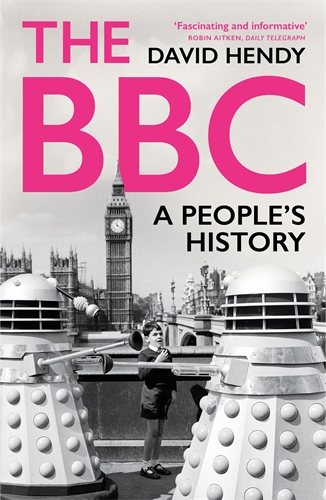
How to connect radical ideas with transforming institutions? David Renton's Against The Law: Why Justice Requires Fewer Laws and a Smaller State is a book that manages to both provide the means to transform our not-fit-for-purpose legal system and appeal to the non-specialist reader. The BBC : A People's History by David Hendy is a magnificent biography of one hundred years of the 'Beeb' an institution that more than any other serves to shape British politics, society and culture. Arguably Palestine , and as a result Israel's treatment of, is the single institution that defines, and divides, what it means to be radical today. For an admirably humanist account wrapped in the personal, Raja Shehadeh's We Could Have Been Friends My Father and I : A Palestinian Memoir.
Two books from leading figures in the brilliant Hope not Hate campaign reveal the extent and dangers of the threat of the Far Right. Tommy : Politics.Drugs.Sex.Money by Nick Lowles exposes 'Tommy Robinson' the man behind the English Defence League for the fraudster and much worse besides he is. The Walk In : Fascists, Spies & Lies is Matthew Collins' true story behind the TV series The Walk In starring Stephen Graham as Matthew, featuring infiltration, conviction and the very real threat of Far Right terrorism. Jonathan Freedland's The Escape Artist tells the story of Rudolf Vrba who escaped from Auschwitz to expose the scale of the extermination underway there. Rudolf's story, Jonathan's skilful telling of, will inspire readers to not only remember, but to prevent, such a tale ever having to be told again.
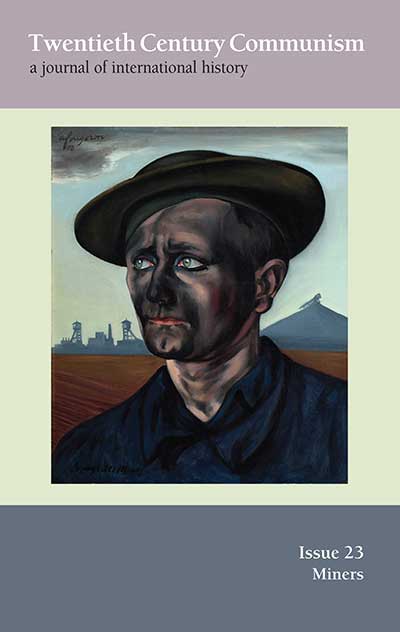
Comrades Come Rally by Michael Crowley reveals the scale of the potential of the 1930's and 1940s Popular Front against fascism via the story of one English city, Manchester and the Communist Party there. The first half of Organize, Fight, Win edited by Charisse Burden-Stelly and Jodie Dean covers the same period, this time in the USA, and specifically Black Communist Party women organising against both fascism and racism. With the second half continuing the account into the early days of what was to become the Civil Rights Movement. For those interested in Communist history a subscription to the journal Twentieth Century Communism would be a fitting New Year treat. The latest edition's biographical essay on the life of Scottish Miners Leader Mick McGahey by Ewan Gibbs will more than suffice to convince, so good it really should be turned into a book, yes please Ewan. With I Could Be So Good For You : A Portrait of the North London Working Class John Medhurst takes a very different approach, a portrait of fifty years, 1950s-2000s, and how one community was remade via race, music and politics. Or for another approach, the graphic novel for history-telling, my top 2022 picks from this genre Polyp's Tom Paine biography Paine and No Surrender a history of the Suffragettes from two of the best in this field the Rickard sisters.
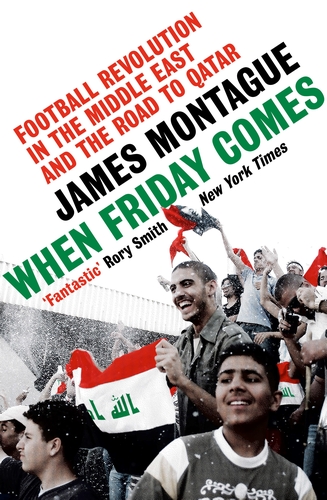
The Guardian described Qatar 2022 as 'a World Cup like no other' a read of Blood on the Crossbar: The Dictatorship's World Cup by Rhys Richards is more than enough to convince that actually Qatar was a World Cup like most of the rest since 1930, absolutely framed by the political. Few journalists covering the tournament came close to providing the kind of insights into the host country as John McManus achieves with Inside Qatar : Hidden Stories from One of the Richest Nations on Earth a book that combines empathy and critique. Two academic books further deepen our understanding of what was exceptional about Qatar 2022, and what wasn't. Paul Michael Brannagan and Danyel Reiche's Qatar and the 2022 World Cup is both informative on Qatar as a World Cup host nation and analytical of Qatar's 'soft power' ambitions for the tournament. Simon Chadwick is by some distance the best academic writer on sports marketing, his new book edited with others The Business of the World Cup the perfect introduction to the all-pervasive marketisation of this most global of tournaments. When Friday Comes is a great title for James Montague's book, the single best read to understand Qatar as a distinctly Arabic World Cup, what it meant to the region, its people, in particular Palestine and Morocco. And after that final, to look forward to the gargantuan monster of 2026, co-hosts Canada, Mexico, USA, 48 teams, 47 of which will go home disappointed, well it has to be How to Win the World Cup by Chris Evans.
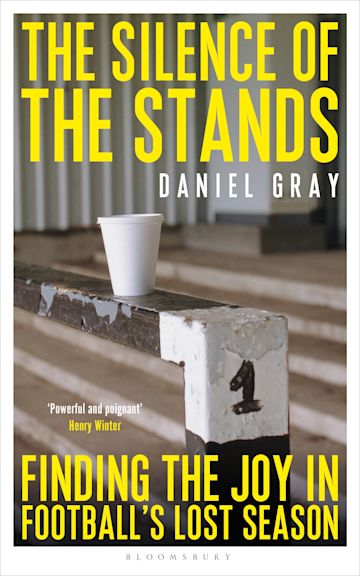
Meantime, league football is back, for fans of lower division and non-league clubs, it never went away. Ned Boulting is so obviously a fan he feels like 'one of us ', and unusually for a sports presenter a great sports writer too. Ned's latest book Square Peg, Round Ball revisits his time as a TV football presenter. Gary Neville's The People's Game is 300 pages worth of his most opinionated punditry and doesn't disappoint. For a moving, highly personal, tribute to what football means in the wake of when we almost lost it, the Covid pandemic read Daniel Gray's The Silence of the Stands . From Carlos Viñas Football in the Land of the Soviets details the revolutionary role of football in the wake of the 1917 Russian Revolution, a tale of inspiration squandered first by the Stalin, today by the murderous Putin. But perhaps we don't need words to mix football, inspiration and change, the book Football Murals by Andy Brassell provides a worldwide gallery of the game's emerging street art. But what about the women? England Women's Euro 2022 win has come too soon to spark a wave of publishers investing in books on the women's game, next year's Women's World Cup certainly should. In the meantime we can enjoy two that set the standard, high, A Woman's Game by Suzy Wrack and from Jean Williams The History of Women's Football.
Away from the football, and politics in search of a novel to brighten up 2023's dark winter evenings or to pack for a summer beach read? Chris Brookmyre never disappoints with his plot-ridden, Scotland-centred thrillers The Cliff House his 2022 latest.
And what to look forward to from the kitchen? Prue Leith provides simple recipes to taste-up the most basic meal, of all, with Bliss on Toast or on a grander scale but still geared towards the easy-to-cook Hugh Fearnley-Whittingstall's Good Comfort.
How to organise fitting all this reading in? A diary of course, the hippest in style, the most acute politically The Verso Radical Diary and Weekly Planner.
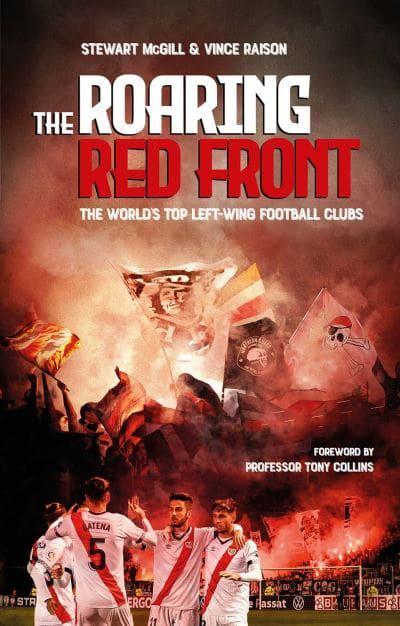
And my number one pick for dangerous reading in '23? As I have on my Philosopohy Football bookshelf a book with the most curious title I've ever come across Fan Culture in European Football and the Influence of Left Wing Ideology well, how could I possibly resist Stewart McGill and Vincent Raison's The Roaring Red Front and I wasn't disappointed. The most unusual football tourism book readers are ever likely to come across, and all the better for it, exclusively visiting what they describe as 'the world's top left-wing football clubs'. To keep hopes aflame over the next twelve months, a second volume please! Meanwhile enjoy, explode.

Signed by author The BBC : A People's History from Philosophy Football here
Mark Perryman is the co-founder of Philosophy Football
Why Terry Hall was so Special
24.12.22
Philosophy Football's Mark Perryman recalls The Specials front man
4 May '79, the morning after Thatcher's General Election victory. In an effort to cheer myself up I pop down to the independent record store tucked away beside one of the platforms at Hull railway station to pick up a debut single on the day it was released. In the pre-digital era of my late teens at Hull University rumours of a new band to listen out for would come via the New Musical Express weekly paper and John Peel's radio show. Both had been plugging The Specials for weeks. Gangsters, I wasn't disappointed.
The first time I caught The Specials live was at London's Hammersmith Palais. A benefit gig for The National Council for One Parent Families. Back home from Hull, I'd travelled up from North Surrey into what at the time was for me a very different world: multicultural, rebellious, fashion-conscious big city youth culuure. Fellow 2 Tone artists The Selecter were on the bill too, the dub poet Linton Kwesi Johnson and all-girl band The Mo-dettes. Ska and reggae, punked-up feminism, music we could dance to, songs we could sing our hearts out for, and at the centre of it all this almost motionless young man, not a lot older than me but infinitely more cool, Terry Hall, conducting musical proceedings with vocals that bordered on the spoken word.
Back at university in the autumn the first 2 Tone Tour was announced and a bunch of us organised a minibus over to Sheffield to see The Specials with Madness and The Selecter. The Top Rank was packed out when we arrived, every bit as angry as punk but dressing, and dancing, in an entirely different manner, or as The Madness tour T-shirts put it ' Fuck Art, Let's Dance'. However the South Yorkshire Police contingent present saw not a crowd out for a good time, but a mob, same as ten years later they did at Hillsbrough, with tragic consequences. And so their commander marched on to the stage to announce they were cancelling the gig and instructed us all to leave immediately. Terry Hall's response? Ignoring the senior police officer's instructions Terry takes the stage too, encourages us all in a sit-down dancefloor protest and then leads the entire audience in chorus after chorus of ' Harry Roberts is our friend, he kills coppers!' A tad impolite, and a half, the police beat a retreat, the gig goes on and don't we just dance, dance and then some more.
The original Specials line-up only lasted two short years. Effectively led not by Terry but by Jerry Dammers who re-established the band as The Special AKA. Terry, Lynval Golding and Neville Staple left to form The Funboy Three. Some good tunes but in all honesty the split revealed the sheer musical genius of Jerry Dammers they'd left behind, showcased in The Special AKA's sole album In the Studio. Jerry and Terry would never work together again, musical differences have a lot to answer for.
Before those differences finally erupted a last record all together it would be hard for any other break-up to top, Ghost Town. Uncannily released as inner-city England erupted in riots from Brixton to Toxteth and most places in-between and beyond the lyrics, the music and accompanying video captured the desolation and destruction early Thatcherism heaped upon us, a legacy we're still living with today. The Specials' final gig was destined to be the big Leeds Rock against Racism Carnival. Still in Hull, I'd finished my degree a few weeks earlier, the plan was to travel over by means of a party before graduating. Then, an unforgettable telephone call, the news my mother had died. I was just 21 years old, I'd grown up with her Multiple Sclerosis since I was seven years old. One of our joys every Thursday night having supper watching Top of the Pops together, something my father, couldn't stand. So, no final gig, instead a long mournful journey home, but no regrets, on this occasion I knew where I needed to be.
Years later I bumped into Terry Hall. Tottenham High Road, Spurs home to Man Utd. Terry had always been a red, hardcore, a travelling fan. And I was living in Tottenham back then, a Spurs fan back then too. No, I didn't expect to meet Terry on the way to the game, but there he was all splayed out on the pavement, looking the very worst for drinking wear. Shocked and surprised, I asked if he was alright, he slurred back something incoherent and clearly didn't welcome the intrusion. I moved on, it was all a bit sad, and even sadder now.
Then 1993, I caught The Specials comeback tour at Brixton Academy. As good as they ever were, all the memories of that 1979-81 moment came flooding back, dancing shoes on for the ska'd-up skanking, and never mind the expanding waistline, the receding hairline,
Terry Hall most of us hardly knew you, but it felt like we did, you'll be missed just the same as anyone we were once close to would be, for the times and laughs we shared, what those moments still mean to us. And irreplaceable? For the sake of this generation and generations to come, the Ghost Towns that continue to blight our lives, lets hope not.
The Philosophy Football 2 Tone T-shirt selection is available here
Mark Perryman is the co-founder of Philosophy Football
Alternative SPOTY
17.12.22
Philosophy Football Mark Perryman's Sports Politics of the Year selection
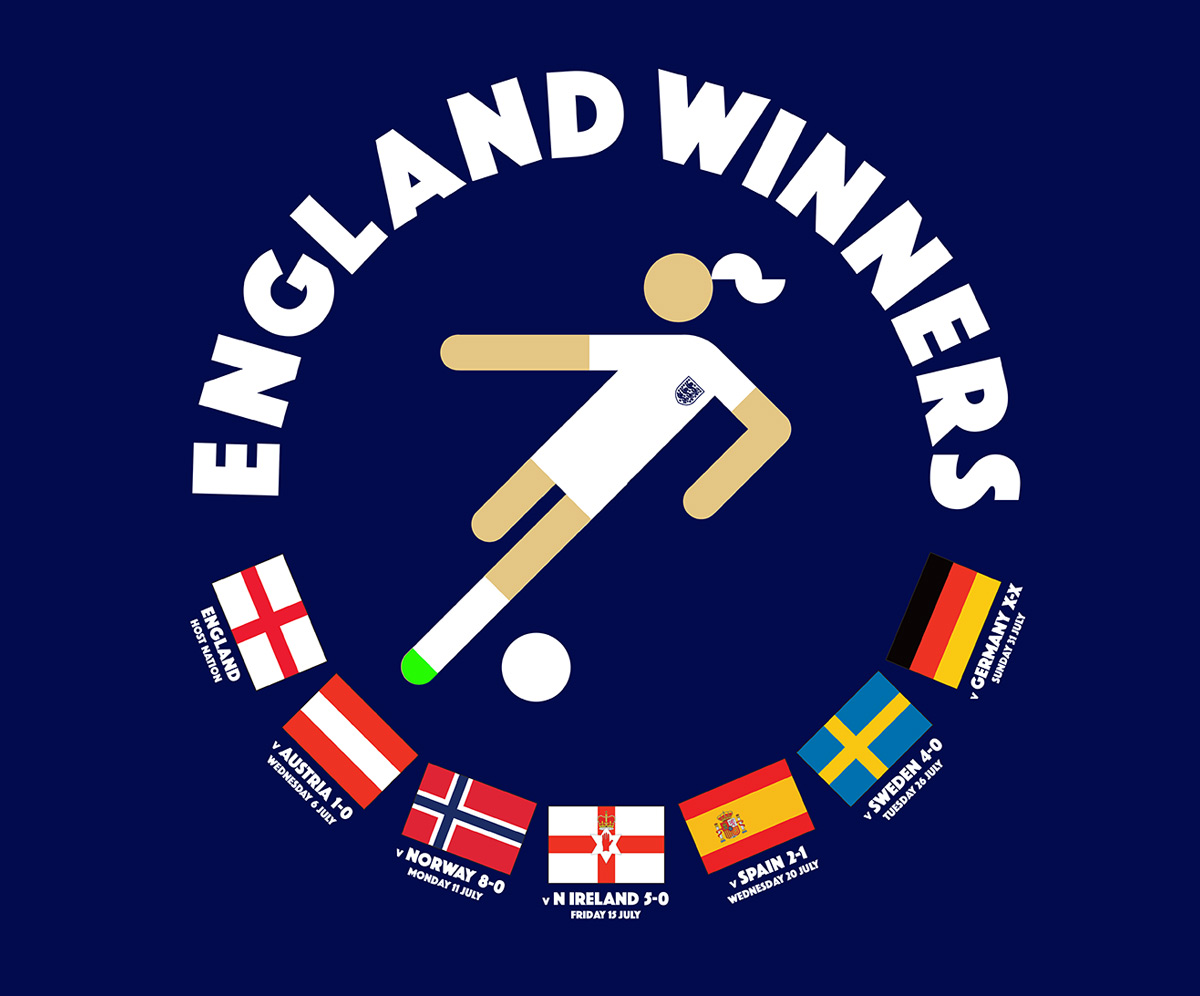
There's not a lot I nowadays agree with Julie Burchill on. Her, and partner in late 1970s punk verbal vitriol Tony Parsons', decline and fall to reactionary bugbears is deservedly notorious. However when Julie in her customary barbed style declared ' Sport. Personality. Now there's an interesting idea.' Well I had to laugh, and agree.
Wednesday night's prime time slot for the BBC Sports Personality of the Year is, and always has been, a platform for the celebritification of sport. To entrench the entirely false division between sport and the social, the cultural, the political that frames it. To deny the existence of a sporing economy that is a key factor in success, and failure. To ignore how all sports are socially constructed. OK p'raps its not Gary Lineker and Clare Balding's job to tackle any of this on Wednesday but the enduring resistance to doing so by too much of the sporting establishment, including most of the sports media, elevates sport as almost entirely lacking context. Or as CLR James in his 1963 book Beyond a Boundary famously put it :
"What do they know of cricket who only cricket know."
An idea further developed by Garry Whannel, who's 1983 book Blowing the Whistle : The Politics of Sport sought to establish a socio-cultural understanding of the games we watch, and play :
“Sport is marked down as a natural, taken-for-granted activity. You don’t need to talk or write about it. You just do it.”
It was Garry's book that more than any influence started me thinking about the sport I just 'did', at the time road running, and within a year I'd had my first piece published, on the London Marathon as a participatory-spectacle, in the magazine Marxism Today.
So almost 60 years on from Beyond a Boundary, almost 40 years on from Blowing The Whistle how about if we rearrange S-P-O-T-Y to spell ' Sports Politics of the Year' and think about what 2022 might look like thru' such a lens?
I'd start with the Women's Euros, and not just 'cos England won it, well, actually yes, beating Germany to boot! There's nothing that boosts sport like domestic success. In England women's football case via two particular dimensions., Both of which deserve to be neither overestimated nor underestimated.
First, a very different way for fans to parade our Englishness, free of, as the rather well-worn phrase puts it, 'toxic masculinity'. As someone who has followed England to four World Cups I'd argue that this 'soft Englishness' has always existed and been majoritarian in England fan culture but when a coked up lad stuffs a flaming flare up his arse the afternoon England men are in a Euros final the media framing would convince most we're all like that. The absence of such enabled England women's fans to establish a different framing, but a gut patriotism lacking such softening still exists, it won't be entirely reversed by England women winning the Euros alone. This is a version of Englishness embedded in a martial, imperial tradition mixed up with a 'fuck-you' anti- social behaviour strand, all of which 'toxic masculinity' alone isn't enough to account for.
Second, the impact on women's participation playing football. Attendance levels for England women, the October game versus USA at Wembley sold out, the April game versus Brazil will likely do the same. The top Women's clubs, Chelsea, Man City, Man Utd, Arsenal can fill Stamford Bridge, the Etihad and Emirates, Old Trafford with tens of thousands of fans. Good, but this is spectating, not sport. The key to a healthier society, in every sense of the word is doing sport not just watching it. Elite success boosts the latter, it has next to no lasting effect on the former. Transforming school sport to enable all girls (and boys) to play football from the earliest possible age is key, with crucially such opportunities to be vastly expanded for post-school years, don't bet your house on any of this happening on the scale required.
Next up the men's Football World Cup in Qatar. A groundbreaking recognition that 'sport isn't political' is oxymronic? No, not quite. The approach of the Guardian, liberal opinion and the wider sports media more widely, was frankly embarrassing. The Guardian declared this was ' a World Cup like no other' an entirely ahistorical approach ignoring the host of the 1934 tournament, one Benito Mussolini, the brutal Argentinian Dictatorship hosting 1978 or Vladimir Putin in 2018 just fouy years after his invarion of Ukraine's Crimea region, and that's just for starters. Once the games kicked off the Guardian's grandly titled coverage 'Qatar: Beyond the Football' became a mere footnote to the match reports, as it was always destined to be. Meanwhile the England team's protest amounted to wearing an armband, until it was decided in the face of FIFA opposition even this was too much. Far more significant than any of this damp squibness was the widespread popularisation of the Palestine flag, and cause by fans, in particular Morroco's, and players too on this the biggest global sporting stage of all. Perhaps now European FAs, commentators, pundits and football journalists might question why the Israeli team competed in the European World Cup and Euro's qualifying groups their clubs compete in UEFA European competitions, but Palestine where they belong in the Asian confederation contests. Because Israel was expelled due to their militarised mistreatment of Palestinians. Will the aforementioned ever mention this salient fact? I'm not holding my breath.
Across October to December uniquely England were competing in four World Cups. Men's football World Cup England exited at the Quarter Final stage, statistically top eight is our ranking in this tournament. The men's rugby league, semi-final, exit. The England Women's Rugby team came oh so close to lifting their World Cup trophy but ended up losing finalists. Only the men's T20 triumphed to be crowned World Cup winners. Those of us who share the Jamesian philosophy however would ask, apart from football, are any of these others truly World Cups? Sure, aping football they have the title but the contenders are absolutely restricted to ex British Empire states with assorted hangers-on not much more than making up the numbers for the group stages. Two factors account for this. One, football was spread worldwide by trade, unlike cricket and rugby by empire. Two, football requires next to no facilities, simple rules, all body shapes can excel, and there's a global path to a professional career. Or in other words, all sports are socially constructed.
Ireland's test series triumph over the All Blacks absolutely deserves to be ranked as one of the greatest team sport achievements of all time, never mind 2022. But Irish rugby is a bt of a curiosity. Unlike football and the Olympics, a United Ireland team. The all-Ireland Irish Rugby Football Union predates 1916 and depite partition was never dissolved, This most English, and most certainly not Gaelic, of sports with its heartlands in Leinster and Munster never cast out, nor those who stick with the Union and in every other regard rejecting any notion of a United Ireland. And just like the football with Jack Charlton, the team's greatest success under an English manager, Andy Farrell. Given the centrality of Republicanism vs Unionism to politics north of the border, and a resurgent Sinn Fein south of tthe border while it doesn't do to overstate the significance of a team that unites both sides, but nor does it help to almost entirely ignore this most unexpected symbol of what a united Ireland could look like, not give it a mention, either.
So there we have it, a first stab at an alternative SPOTY. Not to ruin our enjoyment of sport, watching or doing, but to enjoy, enrich and empower. I'm sure Beth Mead, Messi or Mbappé, Ben Stokes, Andy Farrell will enjoy the 'other' SPOTY night out and if they win them, their gongs entirely deserved. But sport, and politics, is all the poorer when it is treated as anything but each indivisible from the other.
Further Reading
CLR James Beyond a Boundary
Garry Whannel Original 1983 edition Blowing the Whistle : The Politics of Sport Updated edition Culture, Politics and Sport : Blowing the Whistle Revisited
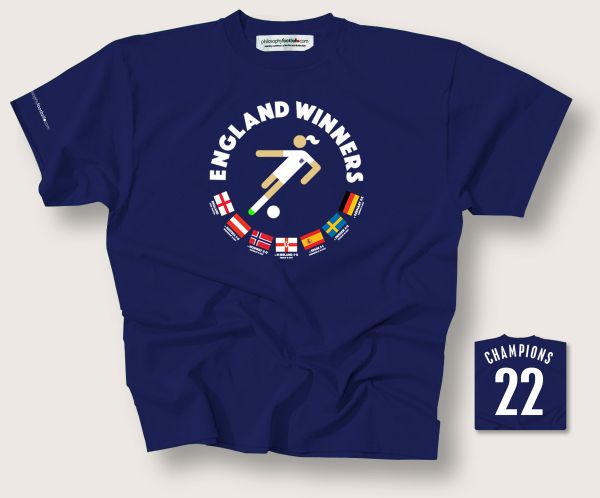
Philosophy Football's 'Alternative SPOTY' T-shirt selection is available here
Mark Perryman is a Research Fellow in Sport and Leisure Culture at the University of Brighton and co-founder of Philosophy Football
- And then there were two
01.03.25 - This Land is (still) Your Land
22.02.25 - Happy 80th Birthday Bob Marley
01.02.25

